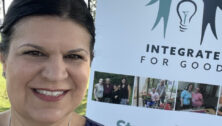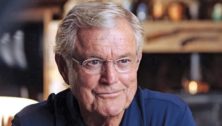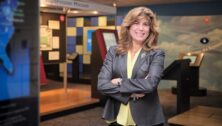Delaware County Leadership: Randy Hayman, Esq. Commissioner and CEO, Philadelphia Water
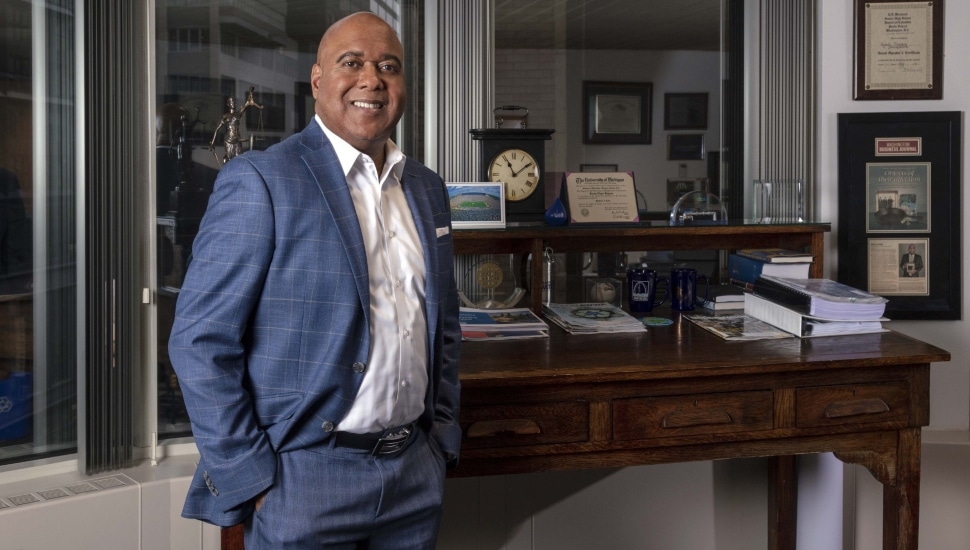
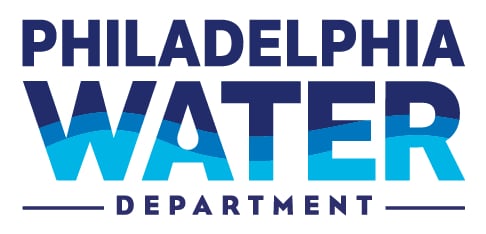
Randy Hayman, Commissioner and CEO of the Philadelphia Water Department, spoke to DELCO Today about growing up in St. Louis and being the son of a teacher and principal who helped him find opportunities to succeed despite discrimination. From a young age, he was drawn to leadership, public speaking, and music.
Hayman recalled attending Georgetown Law, hosting his own radio show, and becoming a trial lawyer before accepting his current position at the Philadelphia Water Department in 2019. He also shared a list of noteworthy mentors who encouraged him and why the young people he encounters through his job give him hope.
Where were you born and where did you grow up?
I was born the middle child of five kids in St. Louis, Mo. I grew up there and went to grade school and high school there.
And what did your parents do?
My parents were Educators. My dad was a Principal and Teacher for 49 years. My father went to Kansas University because it was illegal for African Americans to attend college in Missouri. He graduated in 1930 and came to St. Louis to be an Educator. He taught at Sumner High School, the first high school west of the Mississippi for African American students. He taught Dick Gregory; Arthur Ashe; the Fifth Dimension; Grace Bumbry, an Opera Singer; and Chuck Berry.
Later, he became the Principal of an inner-city elementary school called Pruitt Igoe, which was in the middle of the Pruit Igoe public housing project. Later, when the public housing site was demolished, he became the Principal of the elementary school across the street called Carr Lane. There, he established a unique program with an area private school called John Burroughs, which is one of the top elite private high schools in the country. They asked, “Do you have any students that can make it at this school?” My dad gave him a list of people, including my sisters and I. We took the test and we ended up going to John Burroughs.
What did your mother do?
She was a stay-at-home mom. My mother passed when I was nine years old. But my father remarried, and I had a wonderful stepmother, who I think of as my mother. She was a Teacher for about 35 years. I only use the term “stepmother” as a legal descriptor. In my heart, I was blessed to have two mothers.
What other memories do you have of growing up in St. Louis?
When I think of home, I often think about the smell of freshly cut grass. I grew up on a street that had a lot of big front yards. I remember, as a kid, having to cut the grass.
We lived across from a large park called O’Fallon Park. There was an area of it that was like the Ozarks. It was uncut with tall trees, bushes, and trails. Our big adventure as little kids was to go and spend the day in the woods.
Music was a big part of my childhood. My father played violin, and I started playing the clarinet in fourth grade. And even younger, I began playing the guitar. When I was a child, I told my dad I wanted to learn classical guitar. To my surprise, he took me to see renowned classical guitarist Andres Segovia at Powell Symphony Hall in St. Louis. He went on to patiently sit through my music lessons. I now play classical, jazz, blues, or just about anything. Like my father, I like to listen to music and play by ear. I am far from perfect, but, for me, playing is always relaxing and fun.
Did you have a favorite artist that you looked up to, whose music you loved?
I think every guitarist growing up loved George Benson and Wes Montgomery, although that’s older than I. Earl Klugh is another one who played more of a nylon string guitar. Today, I love all music from classical and blues guitar all the way up to jazz and electric. Any music that has a guitar in it, I will find a way to enjoy it.
How did you distinguish yourself in high school?
I was a leader. It’s one thing I take a lot of pride in. When I attended elementary school, my father was Principal at Carr Lane, a public school in St. Louis, across from public housing. I was a Patrol Boy and a Student Class Leader.
When I went to John Burroughs, one of the top private schools in the country that held classes from 7th to 12th grades, though there were only two black girls and two black boys in my class, I was still a leader. During the first week of class, our Principal asked, “Who wants to be Class President?” Without hesitation, I quickly raised my hand. And I became Class President.
My school also had a court system. In my junior year, I was Junior Court Justice. In my senior year, I was Chief Justice of the Court and Vice President of the school and bragged to everybody that I was going to go to one of the top law schools in the country. And I did; I graduated from Georgetown Law.
When was the first time you recognized that you had leadership capabilities — that when you spoke, people followed you?
It was early on, like fourth or fifth grade. I was never afraid to speak in front of a group, and I think that differentiates me from other people. And I found that people would listen.
It really started to come to fruition in my college years at the University of Michigan. In college, the Financial Aid Office lost my financial aid going into my sophomore year. I remember that my father and I had to travel to Michigan to talk with a number of Financial Aid Counselors and Administrators.
We were persuasive, and in the end, Michigan gave me a job as a Financial Aid Student Advisor at the front desk and the President’s Scholarship. Later, Michigan needed someone to testify about financial aid in Washington, D.C., and I went. Upon my return, I was on the front page of the school newspaper. That summer, I applied for an internship and became an Intern at ABC News in Washington, D.C., which later led to my being a Reporter and Talk Show Host in St. Louis. It also set me on a trajectory to attend Georgetown Law.
Randy, a major theme of your life that’s evolving is that you were always raising your hand. It wasn’t easy for you to raise your hand. You were in St. Louis as an African American. What was it about you that gave you that courage?
My father was the Rock of Gibraltar: His wife passed away, and he was left with two little kids. I never saw him waver. He remarried and brought a wonderful stepmother and another sister into our family. Amid all the daily stressors of life and anything that needed to get done, like sending three kids to private school, college, and grad school, he made it happen.
Since he had gone through discrimination at the University of Kansas, where he graduated with a bachelor’s and master’s in 1930, the word “can’t” was not in his vocabulary. His mother and father graduated from Philander Smith College in Little Rock, Ark., in 1907 and 1908. In fact, my grandmother was the first in our family to graduate from college.
When I was a little kid I would say to him, “I can’t do something. I can’t,” he would bend down, look me in the eyes, take his two fingers and poke me in the chest and say, “Take the word ‘can’t’ out of your vocabulary.”
What part-time jobs did you have growing up?
My dad’s best friend in college was Jerry Rhodes. He was the first Black Pharmacist in St. Louis. Jerry was a true professional with a great sense of humor and a large heart. He let me work in his pharmacy between the ages of 10 and 18.
I kept the pharmacy clean, I helped customers at the front desk with the register. I would pull out the medicine, count the tablets, and type the label. In the evenings, I had to help him make deliveries. It was the only way we could stay competitive with the big chains like Walgreens. And when his arthritis kicked in, I began driving at a young age.
It was the best experience. Working with him taught me a lot about being a professional. It taught me that you must take your job seriously, be on time, and be exact in what you do. And, most importantly, he taught me to show compassion to the people you’re working with and helping. We would have a mother come in who couldn’t afford baby formula. He would kindly say, “You can pay for it next time.”
My dad and Jerry were extremely intelligent men, highly educated, who always showed compassion and concern for other people. And that’s a big part of leadership. Being a Leader isn’t having a heavy voice and slamming your fist on the table. It’s being able to be professional and, at the same time, be compassionate to the people that you’re helping.
You were a good student. You could have gone anywhere for college. Where did you end up going and why there?
I attended the University of Michigan for my undergraduate. Michigan was a large school that was top in many academic disciplines, and I knew that I would be exposed to a lot of opportunities there. Also, I wanted an educational environment that offered more diversity. I had a great college experience at Michigan. I studied Political Science when they had the No.1-ranked Political Science department in the country.
From early on, I always wanted to go to law school and dreamed of being a Trial Attorney. Ultimately, I graduated from the Georgetown University Law Center. I interned and had my first legal job at a K Street law firm.
As I matured, I moved more towards civil litigation in different forms. Later, I worked for the NAACP Legal Defense Fund, served as an Assistant Attorney General for the state of Missouri, became General Counsel for two major water utilities in St. Louis and D.C., and was elected Partner at the oldest and largest environmental law firm in the country, Beveridge & Diamond, PC before having the honor of serving as the Commissioner and CEO of the Philadelphia Water Department.
You had a lot of raw talent. Who saw promise in you as a young man and opened doors for you?
In St. Louis, I grew up across the street from Judge Theodore McMillian of the Eighth Circuit Court of Appeals. He was the first African American to graduate from St. Louis University Law School, and he was top of his class. When I was in fourth grade, my dad said, “Randy wants to go to law school. Would you talk to him?” He was a very calm and compassionate man, and he was somebody I could always talk to over the years.
Secondly, when I was at Michigan, my Academic Adviser, Bazel Allen, who I peppered regularly with questions, personally took me to the law school to meet Wade McCree, the second Black United States Solicitor General after Thurgood Marshall. He, too, would sit and talk with me in his office.
Thirdly, Ben Wilson, the first African American Managing Partner and Chairman of the prestigious environmental law firm Beveridge & Diamond, P.C., always generously took the time to share needed pearls of wisdom about life and the law with me.
Lastly, I would say my opportunity in the water industry came because a gentleman named Willie Horton, who was the Executive Director for the St. Louis Metropolitan Sewer District, was on my radio show. I had a talk show on ABC Radio in St. Louis where I’d interview people about their careers. A year later, he was looking for a General Counsel and hired me. I was the youngest person to serve at the utility at the level of general counsel. And I was the utility’s first African American general counsel.
What did he see in you, Randy?
I think he saw leadership and the ability to follow through on the task that I was given. And that I wasn’t afraid to take on a difficult problem, analyze it, and pivot if I received new information that changed the direction we had to move in. So many people lock into just one position. And then they feel that they have to defend that position, even though they know the reasoning behind it has eroded.
What brought you to Philadelphia?
I was general counsel for five years at D.C. Water and had held a similar position for a decade prior in St. Louis. A friend brought it to my attention that Philadelphia was looking for a Water Commissioner and CEO. I applied and was hired in 2019. And I was so warmly welcomed.
What was it about that welcome that caused you to take note of it?
Across our nation, every community has groups that are interested in their rivers and streams. In Philadelphia, there are more of them. They are better organized. They’re loyal to their mission. They are truly passionate about and highly educated on the issues. And they’re willing to converse and hold a dialogue.
The other aspect is I am the first African American CEO in the history of the Philadelphia Water Department. And the utility goes back to 1801.
I’ve had times when I’m walking down the street, and individuals stop me to discuss water issues. As an aside, having newly moved to Philly, I had to rush to a neighborhood cable store to get equipment before they closed in five minutes. In a rush, I saw a gentleman sitting down wearing a Philadelphia Water t-shirt and asked him if he worked for the water utility. He responded, “yes.” I quickly told him that I was their new Water Commissioner. He responded, “We have been waiting for you!” stood up, hugged me, and asked, “Can I take a selfie with you?”
What are your top priorities in 2024?
We have an aging infrastructure, so it’s imperative that we properly maintain it. In the past, other cities have done this in a one-off manner. I take great pride in the fact that we’re being very strategic and taking a holistic view of how we maintain and improve our system. For example, we have developed a detailed and expansive Water Revitalization Plan — $2.5 billion over 25 years with over 400 projects. One of them involves completely rebuilding our Queen Lane Drinking Water Plant.
Another major point is our workforce. Due to our aging workforce, an increasing number of retirees will be leaving the workforce in the coming years. We have to fill those spaces and bring in new people while making it attractive to younger people. We’re looking at new internship programs. We have one program called Intern-to-Hire that allows us to compete with the private sector.
We try to allow them to complete some of the civil service tests, obtain real-life work experience, and get an offer letter quicker. We’re looking at working with our school district and various trade schools — anything we can do to show young people that working at the Philadelphia Water Department is accessible and sincerely a great opportunity.
The other one is bringing in new technologies: We’re dealing with old problems, but there are new ways to solve them. One is using ultraviolet rays to assist in the purification of water. We’re looking at anything that will allow us to improve what we do at a lesser expense while improving overall efficiencies.
What do you do with all that free time that you have on your hands?
Well, I like to play my guitars and travel a little bit.
Three final questions, Randy. What’s something big that you’ve changed your mind about over the last five or 10 years?
I think we all have to be better at accepting others for their different opinions, for the disabilities that they may have, and for the different ways they look at life. We have to be more generous with one another. The older I get, I’ve found that kindness is the most valuable currency that we possess. That’s one thing Philly has shown me; if you give an ounce of kindness and respect, people will turn around and give you the world.
In the work environment, patience and being clear about what you want and what your position is are two important traits. You don’t have to be loud to get a point across. I found that in the law — when I first started out — there was a feeling that lawyers, especially older lawyers working with younger lawyers, had to be intimidating and dramatic. That is passé. I enjoy working with individuals who know the importance of being professional.
What keeps you hopeful and optimistic? It’s a crazy world out there.
There are two things. The young people coming up. They really want to do the right thing. I know the younger people who join the Philadelphia Water Department care about the health and safety of their community. They care about our waters, rivers and streams, and the next generation.
The other thing is, again, I find that if you show people respect and give them responsibility, they will do their best to live up to the high expectations presented to them.
I see people in our organization who are pushing to excel and pushing to be better. We have a popular program where Water Department employees can go back to school, and we’ll reimburse their tuition costs. Employees use this program to better themselves.
Finally, Randy, what’s the best advice you’ve ever received?
My father’s advice was always, “Don’t give up. Never give up.”
We would joke about the little train that could — “I think I can.” During times of doubt, when I hit a difficult moment, I just think, “I can do this. I can do this.” And ultimately, more times than not, I have found a way with the help of the people beside me.
One time I ran into Dick Gregory in D.C, and he was holding court in the hotel lobby in front of several people. It was the night before I was being sworn in as a member of the United States Supreme Court Bar. I don’t know what got into me, but I ran over to him, got on one knee, put my hand on his knee, and said, “My father taught you at Sumner High School.” He looked at me and said, “Who is your Daddy?” I said, “Robert Hayman.” He slammed both his hands down to his chair and stood up quickly and said, “Bob Hayman is your daddy?” I said, “Yes, sir.” He said, “Bob Hayman helped a lot of people!”
I’m trying my best to live up to that. I hope people say, “He is a water professional, and along the way, he is helping a lot of people, keeping the water clean, helping people get jobs, and motivating his staff.” That is the kind of spirit my father had.
Join Our Community
Never miss a Delaware County story!
"*" indicates required fields







![95000-1023_ACJ_BannerAd[1]](https://delco.today/wp-content/uploads/sites/3/2023/03/95000-1023_ACJ_BannerAd1.jpg)





















